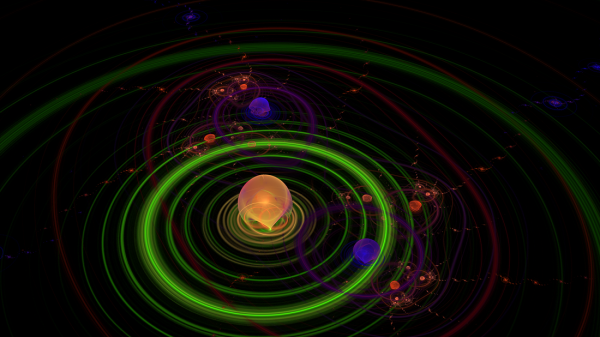BY LETTER
Immedeism
 Image from Avengium |
This attitude tends to result in a dual approach to all experience. On the one hand, sapients beings will tend to treat everything as a "story" which can be judged by aesthetic criteria even while any factual assertions within the story are held to be suspect until proven. And proof will often be too time-consuming and difficult to achieve for the large volumes of purported "facts" that sophonts will encounter all the time. Ability to confirm truth claims will be directly proportional to the intelligence level of the sophonts. The Archailects will have the most well-confirmed, trustworthy information, but they might not always be willing to share it.
On the other hand, many modosophonts decide to adopt a pragmatic philosophy, which is generally known as Immedeism.
Immedeism seeks to become aware of the media of experience and to "touch" real things as much as possible, without any intervening "gloves" (where "gloves" stand for any technological intermediary between a sapient and physical experience). Or if such "gloves" are used — as they often must be in any higher tech polity or society — an Immedeist strives to be aware of this fact all the time.
For Immedeists, experience of any type, whether Virtual Reality or natural dreaming, is a layer that must be recognized and if possible, penetrated in order to reach a more fundamental level. This attitude might be compared to lucid dreaming, in which the dreamer recognizes that he is dreaming. Immedeists aim to achieve "lucid living."
Immedeists want to understand and pass through any mediating technology, meme-complex or other obstacle that stands between them and the "real" world. Immedeists define "reality" as the lowest level of physical implementation of any sapient system and its environment. Ideally, this would mean that Immedeists would be aware of everything from the Planck level up to and beyond their own. This ideal, like most ideals, is not practical. But, like the idea of Heaven, it is a powerfully inspiring meme. And like this idea, it creates a split in Immedeist thinking between living in the immediacy of "now" and using technical means to understand physical reality that lies beyond the reach of the unaided senses.
Because Immedeists seek this fundamental level of comprehension, they also take a philosophically jaundiced view of superior beings, including the archailects. Immedeists tend to look down, not up. They look toward the ground of being, not the heights of superintelligence. Thus, their philosophy is opposed to the "immoderate deism" of those who worship the archailects. Ironically, the Immedeists hold the scientific findings of the archailects in high regard, since these findings help the Immedeists to understand physics better. But they do not worship the hands of the archailects that feed them this information. Indeed, the Immedeists often try to run their own experiments to confirm or disconfirm the findings reported by the archailects. Since the Immedeists lack the resources and intellect of the archailects, these experiments are often ridiculously inefficient, time-consuming and ineffectual. Yet they feel that the gesture must be made. This is a pseudo-religious aspect of their guiding Immedeist meme-complex.
For most of its followers though, Immedeism is simply a philosophy of immediacy, without the mediating agency of technology or deities. It's about being-in-the-moment. Those who follow this philosophy can be from any species, clade or other sapient category. They strive to focus on their experience of the moment while taking the subjective position of being in the Witness consciousness. The Witness position is inherently agnostic about the truth value of experience. But it allows each individual do deal with what is happening in the moment without undue concern for how "real" in might or might not be.
Appears in Topics
Development Notes
Text by Michael LaTorra
Initially published on 01 February 2004.
Initially published on 01 February 2004.






